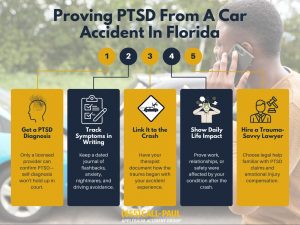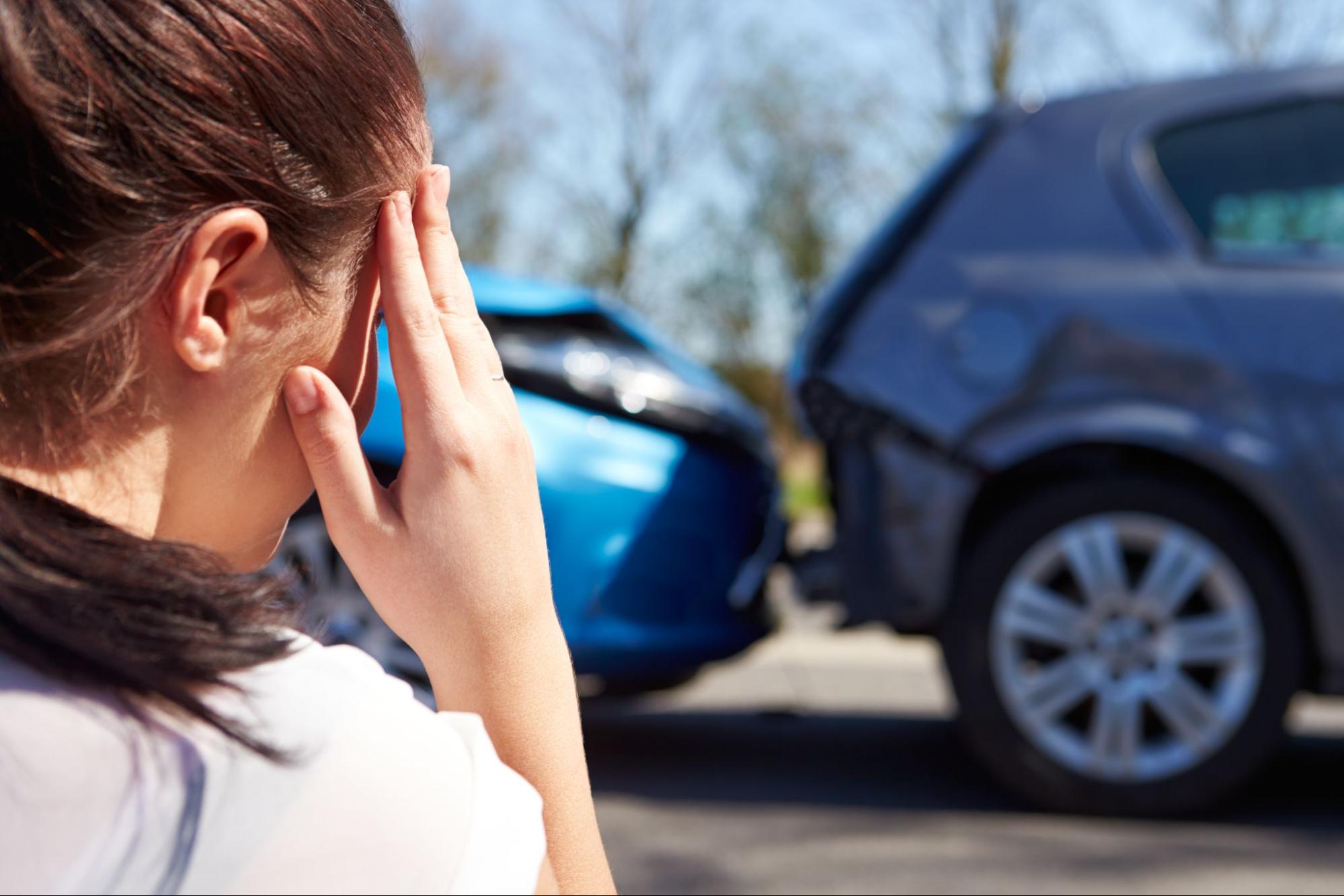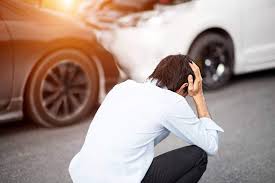PTSD after a Florida car accident can show up as flashbacks, nightmares, panic attacks, driving phobia, or emotional numbness. These symptoms may start immediately or appear weeks later, and if diagnosed and documented, they can be included in a personal injury settlement.
PTSD doesn’t always show up right away, and when it does, it can affect every part of your life. If you’re experiencing emotional distress after a crash in Florida, you may be entitled to compensation, even if your symptoms appeared after the 14-day PIP window.
In this article, you’ll learn how to recognize PTSD symptoms, how long they typically last, whether emotional trauma is covered in legal claims, and how Florida’s no-fault rules impact your options. We’ll also explain how to document your condition, what a lawyer can do to prove emotional distress, and how a PTSD diagnosis may increase your settlement value.
What PTSD Feels Like After a Car Crash
PTSD after a car crash isn’t always immediate or obvious, but when it takes hold, it reshapes how you think, feel, and interact with the world around you. Survivors often assume their reactions are just stress, but post-traumatic stress disorder (PTSD) has distinct symptoms that can derail everyday life. Whether you’re replaying the crash in your mind or suddenly panicking at the sound of traffic, the signs may point to something deeper than anxiety.
Common Emotional and Physical Symptoms
Some symptoms of PTSD appear subtle at first but gradually intensify. Others may hit hard from the beginning:
- Flashbacks and vivid mental replays: Many survivors relive the crash in excruciating detail. These aren’t just memories, they feel like being right back in the car again, often triggered by sights, smells, or sounds.
- Nightmares, insomnia, and sleep avoidance: Sleep becomes difficult. Victims describe dreaming they couldn’t stop the crash or waking up mid-nightmare. The fear of falling asleep may lead to exhaustion or avoidance behaviors.
- Driving avoidance and panic in cars: Getting behind the wheel, or even into the passenger seat, can trigger anxiety attacks or physical panic. Some people detour around crash sites or stop driving altogether.
- Hypervigilance and exaggerated startle response: A sudden honk or tire screech might cause your body to react as though you’re in danger. Hypervigilance keeps the nervous system in a high-alert state long after the crash.
- Mood swings, aggression, or numbness: Irritability, unexplained anger, emotional shutdowns, or moments of euphoria that quickly crash can all be tied to trauma. Some survivors feel emotionally detached from their loved ones or themselves.
These symptoms of PTSD often don’t go away on their own, and may escalate if left untreated. Recognizing them early can help protect your mental health and legal rights.
What Triggers PTSD Symptoms After a Crash
Certain triggers may seem harmless to others, but for survivors of a traumatic event, they act like emotional landmines:
- Songs or smells tied to the crash: Music playing during the accident or smells like burning rubber or gasoline can pull you right back into survival mode.
- Return trips to the accident scene: Driving past the same intersection or stretch of road may cause physical tension, shallow breathing, or full-blown panic attacks.
- Hearing loud traffic or car horns: Some victims react to everyday sounds, slamming brakes, honks, engine revving, as though danger is imminent.
- Being a passenger, even with a trusted driver: Losing a sense of control, even in safe environments, can trigger intense anxiety. Some survivors prefer never to ride with anyone again.
Not all triggers make logical sense, and that’s the nature of trauma. What matters is how it affects your ability to function.
When to Suspect It’s PTSD and Not Just Stress
So when does emotional distress after a car accident cross into PTSD?
- How long symptoms should last to qualify: If symptoms persist for more than a month and disrupt work, school, relationships, or daily routines, they may qualify as PTSD under medical guidelines.
- Signs it’s affecting work, relationships, or safety: Trouble focusing at your job, lashing out at loved ones, avoiding normal activities, or isolating yourself are strong indicators that this isn’t “just stress.”
- When to seek a diagnosis: Seeking help early is critical. Trauma-informed therapists can help determine whether you’re dealing with acute stress or diagnosable PTSD, and that diagnosis becomes central if you pursue legal action.
How Florida Law Affects PTSD Claims
Navigating Florida’s legal system after a crash can be confusing, especially when your injuries aren’t visible. PTSD is real, and it’s compensable, but getting coverage means knowing your rights and acting quickly.
Florida’s No-Fault System and the 14-Day Rule
Florida is a no-fault state, meaning your own insurance covers your medical treatment through Personal Injury Protection (PIP), regardless of who caused the crash. But there’s a catch:
- Why getting care within 14 days matters: Florida’s PIP law requires that you seek medical treatment within 14 days of the accident. Many PTSD symptoms don’t show up right away, so if you wait, insurance may deny your claim for coverage.
To dive deeper into the topic, take a look at this article: Florida 14-Day Accident Law | What You Need To Know - What happens if PTSD shows up weeks later: Delayed onset of trauma is common, but insurers often challenge mental health claims submitted after the 14-day window. That’s why even mild early symptoms should be evaluated.
- How PIP treats emotional trauma: PIP coverage can apply to mental health care, but only if a licensed medical provider documents the need for treatment. Unfortunately, many victims report that insurance carriers dismiss emotional injuries without physical ones.
Can You Still File a Claim if You Didn’t Get Help Right Away?
Yes, but it gets harder. Here’s how to protect your rights if you missed the PIP window:
- Documenting delayed-onset symptoms: If your symptoms emerged late, be sure to detail when they started and how they progressed. A therapist or psychiatrist can help you create a treatment timeline that supports your case.
- Getting retroactive diagnoses and medical letters: Ask your mental health professional to note in writing that your PTSD is directly linked to the crash, even if treatment began weeks later. This helps establish causation for legal claims.
- What happens if your therapist won’t testify: If your provider isn’t willing to support your claim, you’re not out of options. Many legal teams work with independent trauma specialists who can provide a second opinion.
Unique Experiences Survivors Don’t Expect
Songs that trigger panic attacks: A simple melody heard during the crash can provoke nausea, heart palpitations, or overwhelming dread. These seemingly minor triggers are actually neurological flashpoints.
Being terrified of intersections or specific roads: Survivors may avoid certain highways or routes entirely, choosing hour-long detours over a single turn that reminds them of the crash.
Eye twitching, flinching, or physical reactions: Trauma is stored in the body. Sudden movements, body aches, and tension headaches are physical expressions of post-traumatic stress disorder.
Feeling like a burden due to loss of independence: For people who once enjoyed driving or felt in control, PTSD can feel like an identity theft. This often leads to depression, withdrawal, and shame, especially if loved ones don’t fully understand the internal battle.
If you recognize yourself in any of these descriptions, it’s not all in your head. And it’s not something you have to “just deal with.”
Legal Tips to Protect Your Rights and Mental Health

Recovering from PTSD is a medical process. Getting compensated for it is a legal one. Here’s how to protect both.
Document Everything, Even If It Seems Minor
What you do in the weeks following a crash can make or break your case:
- Journal your symptoms daily, include nightmares, anxiety, avoidance patterns, and mood swings.
- Track triggers and their severity, what sets off your panic, and how does it affect your body or behavior?
- Keep records of missed work, social withdrawal, or activities you avoid because of fear or emotional exhaustion.
- Ask your mental health professional to note how your PTSD is affecting your life functionally, not just emotionally. This adds credibility to your claim.
Choosing the Right Lawyer for a PTSD Claim
Not every personal injury lawyer understands emotional trauma. Some focus only on broken bones and property damage.
- Look for someone with experience representing clients with mental health injuries, particularly PTSD from car accidents.
- During your free consultation, ask how they’ve handled cases like yours. What settlements have they seen? How do they prepare clients who fear testifying?
- A good attorney will shield you from unnecessary re-traumatization. They’ll communicate with empathy, handle legal stress on your behalf, and connect you with professionals who understand your situation, whether medical, legal, or both.
You’re Not Alone, And You Can Get Compensation for PTSD
Here’s how to move forward, even if you feel stuck today:
- Step #1: Get a diagnosis and begin mental health treatment right away, don’t wait for symptoms to “prove themselves.”
- Step #2: Document your PTSD thoroughly, keep consistent notes, provider letters, and treatment records.
- Step #3: Understand your legal options under Florida’s no-fault laws, especially how PIP coverage works for mental health.
- Step #4: Talk to an attorney who understands the nature of emotional injury, not just visible damage.
Applebaum Accident Group was built for cases like yours. If you’re struggling after a Florida car accident, we’ll help you connect with trauma-informed lawyers and medical professionals who take your condition seriously, and know how to fight for full compensation.
Take the First Step Toward Justice
If you’ve been in a car accident and need legal guidance, don’t wait. Call Applebaum Accident Group today, and we’ll connect you with the right attorney to handle your case.
📞 855-225-5728 | Request An Appointment
With Applebaum Accident Group, you get the support, expertise, and connections you need, without the hassle. Let us help you find the best legal representation in Florida.





